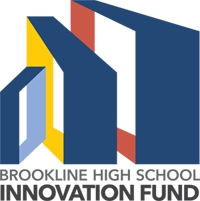As an algebra class discusses taking the standard deviation of a data set, just down the hall, the Data Science and Social Justice class is using a data set to find the intersection between math and global issues.
Taught by math teachers Danielle Thiessen, Danielle Rabina and Christopher Monschauer, the Data Science and Social Justice class was created after the teachers sent a grant proposal to the Innovation Fund. Theissen, Rabina and Monschauer hoped that this course would allow for students to apply mathematical theories to topics they are passionate about.
Thiessen said the idea was derived partly because most math courses offered are more theoretical.
“Because data science ties into the world around us so much, we thought this would be the perfect opportunity for the math department to cover a course on social justice. Every other course has a class on social justice and we didn’t, and it was really hard to tie social justice into the algebra curriculum,” Theissen said.
Senior Dylan Krakowski said they were drawn to the class after learning it intertwines two topics they are passionate about.
“I didn’t want to take just a ‘normal’ math class. I really like using math in real world scenarios, and I also pursue social justice in the real world—I try to live my life in a way that benefits humanity. So I was like, ‘kill two birds with one stone,’ and take the class,” Krakowski said.
Rabina said class is spent working on various projects that will eventually teach students how to complete the data science cycle. According to Rabina, the last step of the cycle is for the researcher to share their work- the backbone of the course,
“The data science cycle encompasses what a data scientist would need to do to complete a project. You start with asking the questions, then you gather data and then you might go back and fix your questions based on the data you see. Once you have your data, you have to learn how to take this huge amount of data and analyze it,” Rabina said. “Then, you create some way to communicate what you found to the world around you.”
The class’s first unit will culminate in a project that centers around gun violence during the summer months in Boston. The idea for this project was born after Thiessen, who lives in Boston, noticed an uptick in violence this past summer. At the end of the project, students in the class will analyze the patterns established through the data, and ultimately will make recommendations to the Police Commissioner of Boston based on these patterns.
Rabina said the data science cycle is helpful to analyze local events.
“We were talking about what happened, and thinking about how we could involve it in the curriculum and what factors may have led to this increase in gun violence. This is actually part of the data science cycle: noticing things in your world and asking a question about it, then gathering data, then drilling it down to a clear idea. We thought this could be our first project, and that’s how it was born,” Rabina said.
Prior to this major project, students are completing smaller projects in which they learn different skills pertaining to data science. Krakowski said one of the highlights of these projects has been that it is up to the students to decide which direction they want to take them.
“Students have a really big voice in the class, which is one of the ways in which they’re intertwining social justice into their curriculum. They’re allowing a lot of student power and student decisions to choose to work on something which we are passionate about,” Krakowski said.
Thiessen said one of the key qualities of the course is that there are no prerequisites; the class is open to all students.
“I recommend this class to any student who is coming out of standard, honors or advanced,” Thiessen said. “Any student who wants to learn more about statistics and data science from a more hands-on experience and is eager to learn about social justice. We built this class wanting it to be for everyone.”
Ava Varrell, Sports Managing Editor|October 21, 2022
GRAPHIC BY AVA VARRELL

